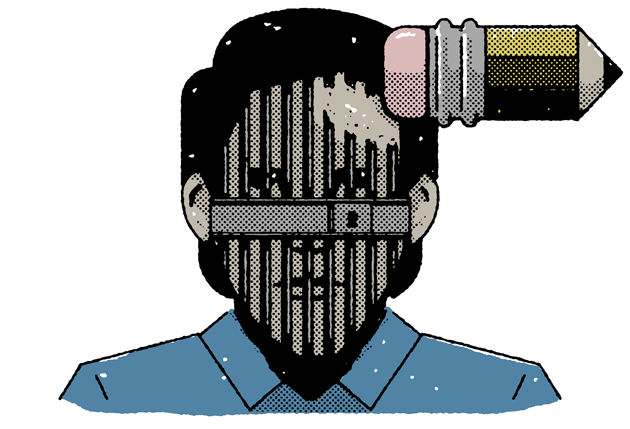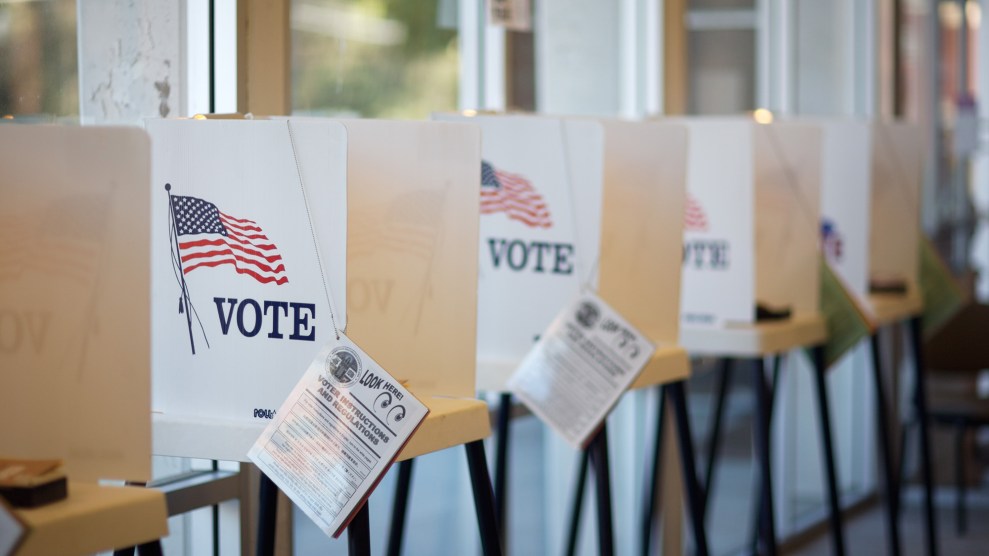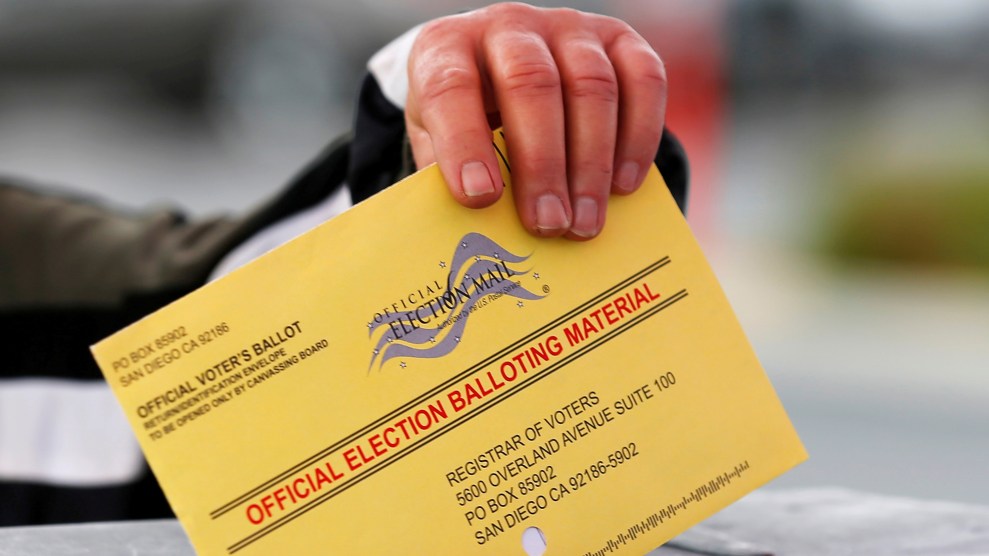
Marcella White was 15 when her father, a police officer, was shot dead while responding to a break-in. After his death, she moved from Utah to California, where she tangled with the law. None of her offenses were violent, and in total she spent less than a month behind bars. But nearly four decades later, at the age of 69, White has paid an unexpected price for her mistakes. Last year, her applications for senior housing in the San Francisco Bay Area were rejected because of her felony record. When she inspected her rap sheet, she was startled—she couldn’t even remember some of the offenses of her youth. “It was like I was sleepwalking,” she says of her old self. “I wept for the person I used to be.”
Millions of Californians have felony records. But thanks to recent legislation, that may change as hundreds of thousands of them apply to wipe the “scarlet letter F” from their rap sheets. The new laws present “the largest record-change opportunity in US history,” according to Lenore Anderson, the head of the nonprofit Californians for Safety and Justice. And with about a tenth of the country’s total inmate population, the Golden State could be an important test for whether these criminal justice reforms work and should be replicated elsewhere.
California allows ex-felons to vote but places 4,800 other restrictions on them: They can’t own a gun or serve on a jury, they often run into problems applying for financial aid and subsidized housing, and their record can work against them in divorce or child custody cases. More than half the restrictions deal with employment—former felons are often blocked from jobs at schools, hospitals, and police departments, and they can be denied occupational licenses for just about every profession, even dog walking. About three-quarters of these restrictions last a lifetime.
The recent laws aim to alleviate some of these burdens. In 2014, California voters approved Proposition 47, which redefined six low-level drug and theft-related crimes as misdemeanors, allowing inmates to apply for resentencing and leave prison. It also allowed former offenders to retroactively downgrade their past felonies. Proposition 64, approved last November, created the same opportunity for people with certain marijuana-related convictions. (And Californians who’d been busted with small amounts of pot, which is now legal, can wipe their slates completely clean.)
The impact could be tremendous. So far, the propositions have freed thousands of incarcerated offenders, as California seeks to comply with a 2011 Supreme Court order to reduce its prison population. The state has saved more than $100 million in prison costs—funding that, since June, has been reallocated to drug treatment and mental health programs, as well as initiatives that offer housing and job opportunities to ex-offenders, helping them stay out of prison for good.
Yet while about 280,000 petitions for records changes have so far been filed, in total an estimated 2 million people are eligible—which means as many as 1.8 million haven’t signed up, the costs of which, advocates believe, could be enormous. Those 4,800 restrictions, after all, don’t just hurt ex-felons—they also hurt their families and local economies. Formerly incarcerated men bring home about 40 percent less pay every year than men who’ve never been to prison, which makes it harder for them to support themselves and their dependents. Decreased earnings mean less tax revenue, says Nicole Porter of the Sentencing Project, an advocacy group pushing for alternatives to incarceration, and that means less money toward local social services, infrastructure, and education. Former felons who can’t find work may be more likely to reoffend, experts say, and studies suggest their kids may be more likely to struggle in school.
Attorneys and advocates have used billboards, radio ads, and flyers to spread the word about walk-in clinics where former offenders can get free help reducing their records. Organizers have gone door to door, looking for eligible felons at methadone clinics, veteran support centers, and homeless shelters. Even Uber has jumped on board, notifying wannabe drivers with felony records how to change their criminal histories so they can work for the company.
Some public defenders’ offices have been holding weekly walk-in sessions for record changes. At the Clean Slate Clinic in San Francisco, there was a spike of expungement-seekers after Donald Trump was elected—immigrants came in droves, worried their criminal records could get them deported, says a San Francisco County deputy public defender, Simin Shamji, who oversees the clinic. Outside her office one recent morning, cardboard boxes were filled with handwritten applications for record changes. Just about every seat in the waiting room was occupied, as a single attorney called people back one at a time to go over their rap sheets.
These clinics help people like Rochelle Solombrino, whose record was riddled with several felonies, including two for drug possession; a misdemeanor; a drunken, high-speed car chase; and a stint in prison. She had gone from Skid Row in Los Angeles to a recovery center in San Pedro, where she sobered up and was eventually offered a job. Five years later, after she was promoted to operations coordinator, the center applied for a government contract from the county and was informed it wouldn’t qualify if anyone on staff had a felony record. Solombrino’s history made it impossible for her to secure Section 8 housing, and it interfered with her plans to get custody of her niece, who was in foster care. At a record-change fair in Los Angeles, she used Proposition 47 to clear away her felonies and keep her job. “My past is really my past now,” the 51-year-old says.
But the new reforms aren’t without flaws. Some former offenders can’t afford to pay the roughly $50 fee for their state rap sheet. And once they secure their records, “you need a Ph.D. to figure it out,” says Shamji.
Like its prison population, the majority of the country’s former offenders are black or Latino. Advocates of clean slate efforts see their work as an extension of the civil rights movement. “There is a real parallel in terms of, ‘Listen, the law has changed and this is now an opportunity for you to participate fully in society,'” says Anderson. “If people get their records clean, they can be resurrected from that person they were,” says White. “If you keep making them half-citizens, that’s all they’re ever going to be.” The parallels to the civil rights movement are even more acute in states such as Florida that bar former felons from voting.
It’s too soon to tell if California will inspire like-minded legislation nationally, but advocates are hopeful. Idaho, Oregon, and West Virginia have all passed laws allowing people to reduce prior felony offenses to misdemeanors. A New York state senator introduced a similar bill this year, and lawmakers in a handful of other states are drafting proposals to do the same. “People have learned from what worked in California,” says Jolene Forman, a staff attorney at the Drug Policy Alliance.
White, for her part, went to a record-change clinic in Stockton after her housing application was denied. After getting some of the felonies wiped from her file, she was approved for subsidized senior housing earlier this year. “I absolutely love it,” she says, taking out a key to unlock her apartment. Inside, afternoon light casts a glow through the living-room window. A couple of weeks after moving in, she still needs to furnish the space, which is filled with little more than some unpacked boxes, a bed, a wooden dresser, and a red teakettle in the kitchen. “It’s not very big,” she says, “but it’s mine. And it’s a blessing.”
















